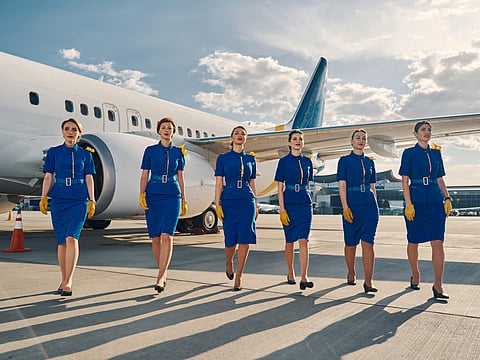Can airlines do more to personalize travel experience for women?
Personalized approaches will work in airlines favor given their spending power

The aviation industry has long been driven by business travelers, corporate contracts, and premium leisure demand.
Yet, airlines may be overlooking their most powerful customer segment: women. Women are not just passengers; they are economic powerhouses, controlling an estimated $31.8 trillion in annual spending and influencing 85% of consumer purchase decisions worldwide.
As airlines struggle with profitability and differentiation, catering to this influential demographic presents a significant opportunity.
Women’s economic power in travel
In 2023, women accounted for over 64% of global travel bookings, according to a report by the Global Business Travel Association (GBTA). Furthermore, McKinsey research shows that women-led households spend up to 30% more on premium services when convenience, safety, and personalization are prioritized.
Despite this, the aviation industry remains largely gender-neutral in its approach, missing a crucial chance to optimize services that align with female travelers' preferences.
The business case for gender-specific strategies
Airlines need to acknowledge the nuanced expectations women bring to air travel. Studies by IATA highlight that female travelers prioritize:
Safety and security: Women are more likely to choose airlines with well-lit, secure lounges, seamless baggage tracking, and clear safety measures.
Premium comfort and wellness: Demand for airport spas, quiet zones, and personalized meal options is growing. A 2022 survey found that 71% of female frequent flyers are willing to pay extra for healthier in-flight meals and wellness-focused amenities.
Loyalty and flexibility: Women tend to be more brand-loyal when their expectations are met. In fact, a Harvard Business Review study found that airlines that proactively cater to female customers see a 15% higher retention rate among female loyalty program members.
IndiGo’s move
Luxury brands, financial institutions, and even automotive companies have successfully adapted their marketing and service strategies to capture female spending power.
In August 2024, IndiGo, India's largest airline, introduced a feature allowing female passengers to select seats next to other women during web check-in. Seats booked by female passengers are marked accordingly, enabling women to choose seating arrangements that align with their comfort preferences. In the US, Delta's recent push for gender-balanced leadership has helped enhance its reputation among female travelers.
Hotels like Marriott and Hyatt have seen significant revenue growth by customizing amenities for female business travelers, such as secure room locations and curated wellness programs. Airlines can replicate this success by redesigning loyalty programs, tailoring inflight experiences, and offering dedicated services that enhance convenience and peace of mind.
Airlines must take action
The opportunity is clear. Airlines that integrate a female-first strategy will not only unlock higher revenue potential but also build stronger brand loyalty. Steps they can take today include:
Redefining loyalty programs: Offering rewards aligned with women’s preferences, such as wellness and shopping experiences (e.g., collaborations with luxury brands), childcare services, or exclusive safety perks.
Enhancing airport and inflight services: Investing in secure airport lounges, personalized shopping and dining, and better onboard wellness programs.
Gender-smart marketing: Using data-driven insights to personalize marketing campaigns that resonate with female travelers.
The aviation industry is overdue for a shift. Airlines that recognize women as the largest and most influential economic force will not only capture a lucrative market but also lead the way in redefining premium travel experiences. The choice is clear - evolve or be left behind.
The writer is founder of BAA & Partners.
Sign up for the Daily Briefing
Get the latest news and updates straight to your inbox



